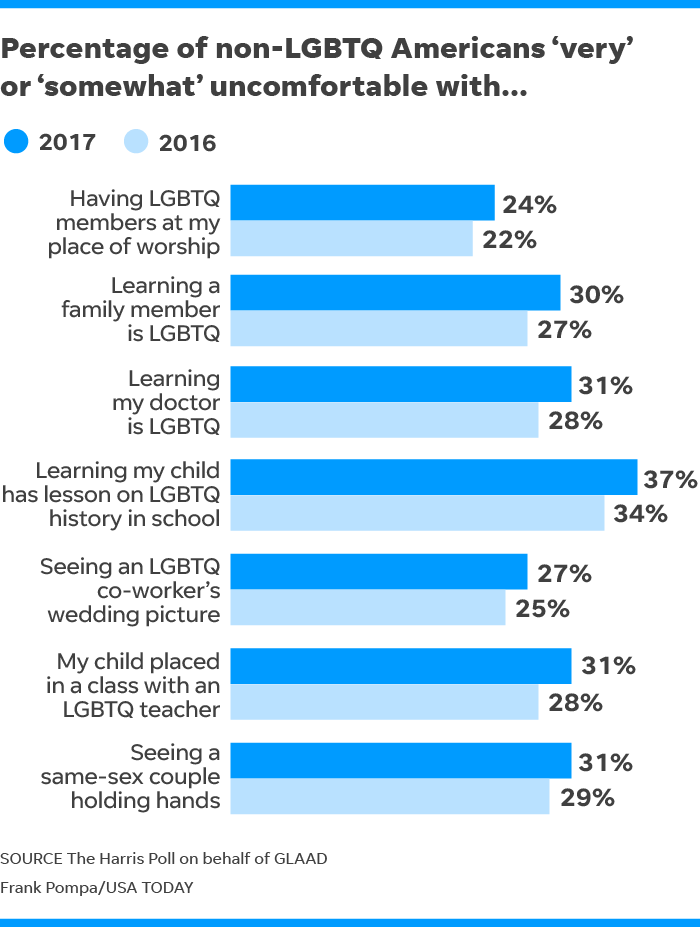Americans Have Become Less Accepting of LGBT in Trump's First Year
For the first time in four years, acceptance of LGBT people in the U.S. has dropped, a "dangerous repercussion" of a year in which marginalized communities have felt targeted by political rhetoric.
Less than half of non-LGBTQ adults (49 percent) say they felt comfortable with LGBTQ people in a variety of settings, such as in the same place of worship or as a teacher at their child's school, according to the Accelerating Acceptance study. The number is down from 53 percent from last year.
The study, conducted by The Harris Poll for LGBT media advocacy group GLAAD, reveals a reversal from previous years, which showed a growing acceptance of the LGBT community.
"In the past year, there has been a swift and alarming erosion of acceptance which can only be fought by being visible and vocal," said GLAAD President and CEO Sarah Kate Ellis,, who presented the results during a panel discussion at the World Economic Forum in Davos, Switzerland.
The decline in acceptance comes when there has been "a significant increase in LGBTQ people reporting discrimination because of sexual orientation or gender identity," according to the report, which was conducted in November.
This year's results contrast sharply with those of the previous three years, which showed Americans becoming "more comfortable with LGBTQ people and more supportive of LGBTQ issues," Ellis wrote in the report.
The report also points to a number of anti-LGBTQ headlines and policies over the past year, including the Trump administration's efforts to ban transgender people from serving in the U.S. military, confirmation of a Supreme Court justice opposed to marriage equality, and the passage of a Mississippi law allowing businesses to legally deny service to LGBTQ families.
Other findings in the report, which surveyed 2,160 adults, of whom 1,897 were classified as non-LGBTQ:
Almost one-third of respondents (30 percent) said they would be uncomfortable learning a family member is LGBTQ, compared to 27 percent last year.
About 31 percent said they would be uncomfortable having their child's teacher be LGBTQ, compared to 28 percent last year.
About 55 percent of LGBTQ people surveyed reported experiencing discrimination based on gender identity or sexual orientation, a significant jump from 44 percent last year.
"An unseen casualty of a tumultuous year has been the LGBTQ community," John Gerzema, CEO of The Harris Poll, said in a press release. "In a single year, we've seen significant declines from what had been an increasingly accepting America to one now less supportive. And this lost ground of acceptance cuts across many in American society."
The study did find one bright spot, noted Ellis. Seventy-nine percent of non-LGBTQ U.S. adults still agreed with the statement: "I support equal rights for the LGBT community."


Comments